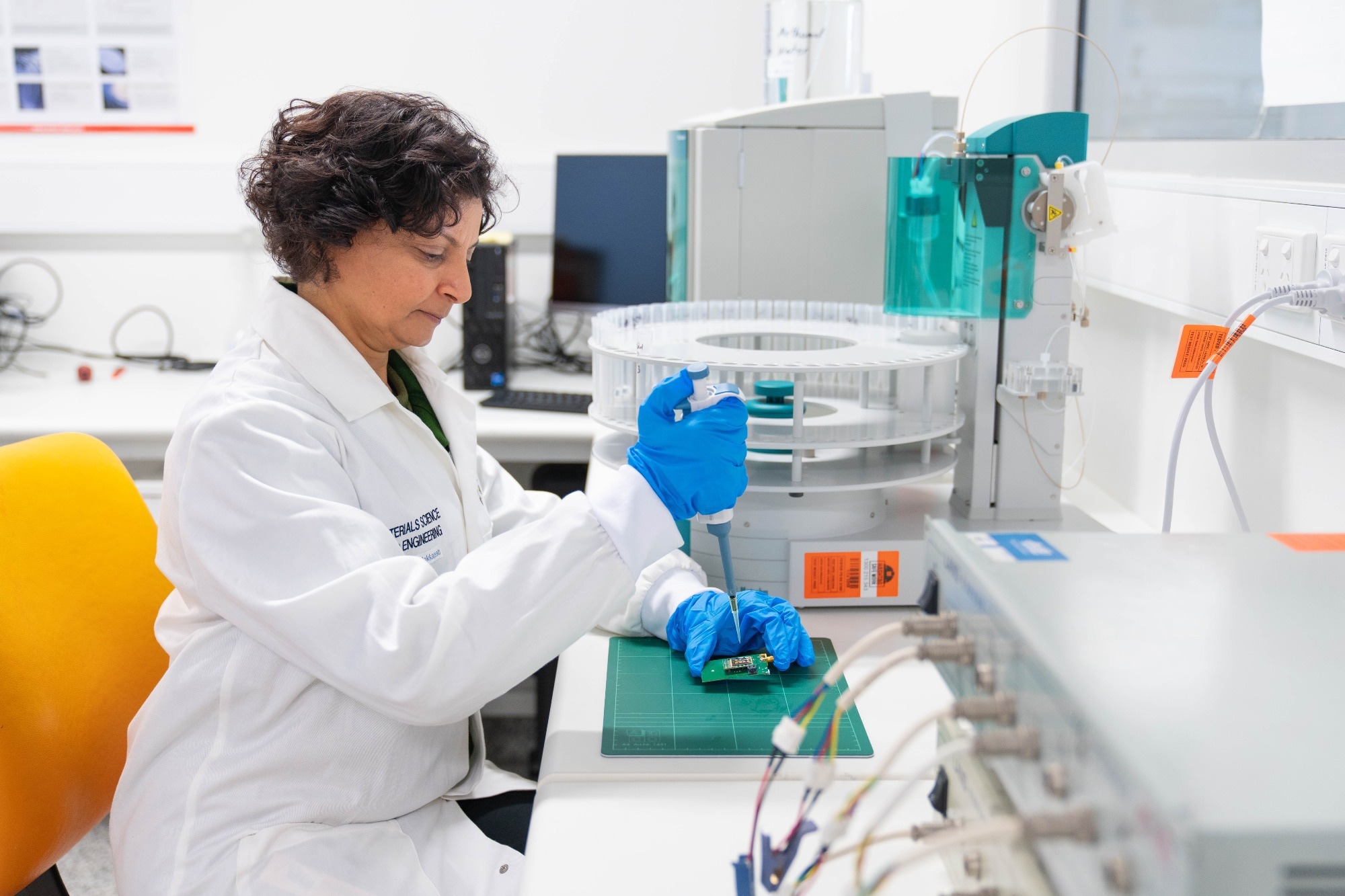GPs could soon be able to screen their patients for Alzheimer’s Disease (AD) using a simple handheld device developed by Monash engineers.
 Associate Professor Sudha Mokkapati has been working on the device for four years. Image Credit: Monash University
Associate Professor Sudha Mokkapati has been working on the device for four years. Image Credit: Monash University
Monash engineers have developed the first-of-a-kind finger-prick blood test with ‘needle-in-a hay-stack’ precision to detect the hallmark (protein) biomarkers in early AD before symptoms progress.
The size of a credit card, it uses world-first patented sensor technology which can detect ultra low concentrations of disease markers in blood in minutes.
With the number of Australians diagnosed with dementia set to double by 2054, the quick blood test could become a vital tool to streamline diagnoses by giving GPs unprecedented access to non-invasive diagnostics.
Associate Professor Sudha Mokkapati from Monash Materials Science and Engineering, developed the proof-of-concept electronic sensor for point-of-care testing, removing the need for laboratory-based pathology tests, and making the process to diagnosis faster and more cost-effective.
“It’s simple to use, low-cost and portable so it could be made widely accessible to GPs to screen patients right at the point-of-care. Detecting very early disease in large populations could dramatically change the trajectory of this burdening disease for many patients, and shave millions off associated healthcare costs,” Associate Professor Mokkapati said.
We’ve completed testing that shows the technology is highly advanced by design and capable of detecting ultra low levels of several disease biomarkers in blood. The next stage is to undertake the clinical validation needed to bring this a step closer to reality, and we’re reliant on further funding to progress this.”
Sudha Mokkapati, Associate Professor, Monash Materials Science and Engineering
Key collaborator Associate Professor Matthew Pase, at Monash’s School of Psychological Sciences, said the device may facilitate earlier, more efficient diagnosis, enabling timely intervention and management of AD.
“Most patients with neurodegenerative disease are typically diagnosed at advanced stages. Sadly, treatments targeting late-onset disease provide limited therapeutic benefit,” Professor Pase said.
“Earlier screening could change the outlook for many patients diagnosed with cognitive impairment, increasing the chance of halting or slowing symptom development and the rapid progression of the disease.”